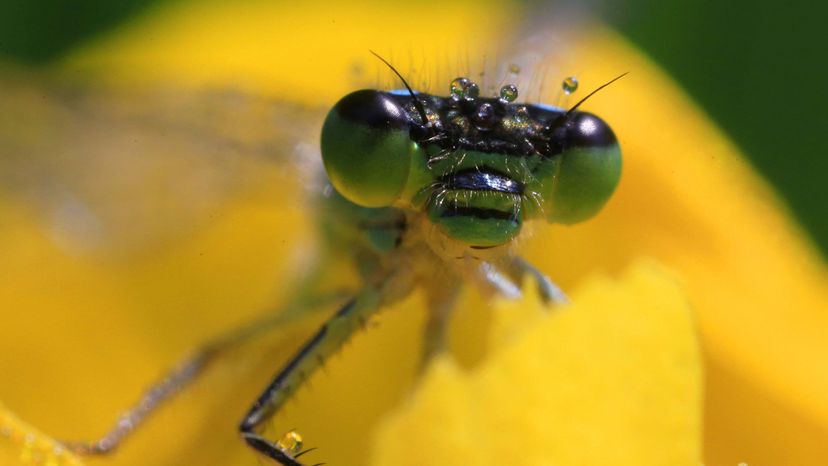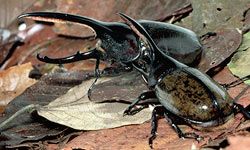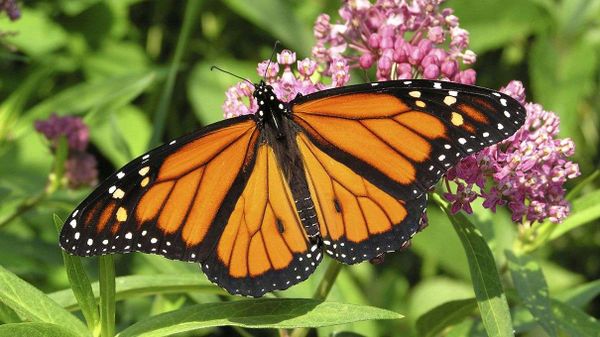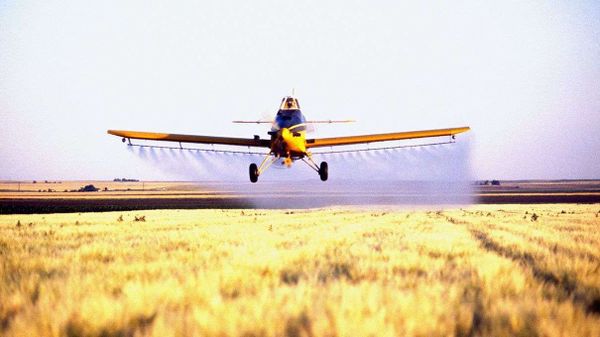
When you hear the word "Armageddon," you might think about the battle that will be fought at the end of the world by humans, but maybe that battle is being fought right now — only all the casualties are bugs.
Insectsare vitally important to the functioning of the world's ecosystems: They do most of the plant pollination, after all, while providing food for the bulk of the world's birds, amphibians, reptiles and mammals. They're also essential in nutrient cycling — breaking down the world's dead stuff, manure and what have you — to make more dirt for us to grow our food in. Every ecosystem on the planet needs insects, which is why the apparent tanking of bug biomass is so alarming.
Advertisement
Astudypublished in October 2017 in the journal PLOS One confirms the insect decline that many scientists and insect enthusiasts only suspected. Turns out their suspicions were not only validated, but surpassed: In Germany, insect biomass has declined by roughly 75 percent over a little less than three decades.
"Declines in insects as a group have been suspected for quite some time, indirectly through declines in insectivorous birds," says coauthor Caspar Hallmann of theInstitute for Water and Wetland Researchat Radboud University in the Netherlands, in an email. "But around the globe, only a few datasets exist to inform us, and these data are mainly concentrated around bees, butterflies and moths."
Since 1989, a group of amateur entomologists in Krefeld, Germany, has been collecting all kinds of insects at 63 German nature reserves between spring and autumn each year, following a highly standardized sampling protocol. Over the years, they realized the tent-like traps, specially designed to catch flying insects, were yielding a smaller and smaller catch each year, even though every aspect of their sampling regime remained constant. Weighing the total biomass of the yearly haul over time allowed them to quantify exactly how big a hit these flying insects have taken over the decades. They found an overall three-quarters decline in insects when they looked at the entire collecting season, but in high summer, when insect numbers are at their highest, the decline was even more noticeable at 82 percent.
These findings are, of course, specific to Germany, and data are very scarce for nature preserves in other parts of the world. But the drop in insect populations is in no way limited to Germany. A 2014studypublished in the journal Science detailed the decline in worldwide populations.
The reason it's important to compare these data to those taken from other protected areas has to do with the fact that, since agricultural or urban areas have relatively little to offer insects — and are often outright toxic to them — it's tough to know whether they're doing poorly in other places in the world, in habitats where they should be thriving. That said, general datasets on butterflies, moths and (most famously) bees around the world mostly point in the same dismal direction. Additionally, the so-called"windshield phenomenon"might not be data-driven science, but it seems that all over the world in recent decades, people have been noticing fewer squashed bugs on their windshields than ever before.
And it's not like German land is used that much differently than it is anywhere else: "We think that our study locations are representative for small nature reserves embedded in a human/agriculture dominated landscape, and therefore speculate that this may be the case for many more places on the world," says Hallman.
But what could be causing this decimation of Germany's insects? While the research team looked at whether changes in climatic conditions, landscape changes or local habitat changes may have caused the decline, Hallman says they were unable to explain it based on these analyses.
"Our best guess at this point are the negative influences of land use surrounding the nature reserves, particularly agricultural practices such as excessive use ofpesticides/fertilizers, as well as over decline in habitat suitability in between the reserves."
But the effects of so many fewer insects can already be observed in the decline of birds in Germany during the same time period: 12 million pairs of breeding birdshave disappeared, and the same trend has been observed inother partsof Europe.
So next time you see a bug in your house, reconsider squashing it, and maybe just escort it outside? Its kind is having a tough 30 years of it.
Advertisement





